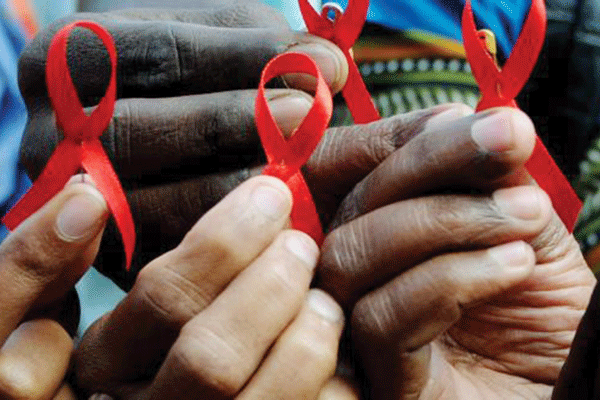
KAROI — It is around 5pm on Saturday when officials from the Ministry of Health and Child Care, Zimbabwe National People Living with HIV and Aids and other stakeholders start pitching tents near popular night clubs within Karoi high density suburb of Chikangwe.
BY NHAU MANGIRAZI
Some women are busy visiting butcheries lined up near at least four night clubs scattered around the premises including grocery shops.
A woman volunteer’s voice, calling on everyone to get tested for HIVcompetes with the high volume of music from one of the night clubs. She is relentless and some people begin to pay attention to her calls.
“Come and get tested and know your HIV status. Your health is important,” she said.
Within a few minutes several people including teenage girls and boys, women as well as men queue up to be tested. In less than an hour the long queue winds up past vegetable and later a braai stand.
People here are expressing their joy that at least the service is available at the opportune time near their homes. Among them are commercial sex workers and imbibers.
For a moment, the voluntary and testing officers are overwhelmed by the response ignited through the moonlight HIV and Aids testing initiative in the small farming town situated about 204km northwest of Harare.
- Chamisa under fire over US$120K donation
- Mavhunga puts DeMbare into Chibuku quarterfinals
- Pension funds bet on Cabora Bassa oilfields
- Councils defy govt fire tender directive
Keep Reading
“We are getting many people compared to regular testing and counselling at the referral hospital and clinic around town.
“It is encouraging that many people are coming under the cover of darkness to be counselled and tested,” said one of the officials.
The programme launched by Hurungwe District Hospital with the assistance from National Aids Council and other stakeholders started on a high note providing night-time voluntary testing and counselling.
There were clinical officers and nurses on-site for patients to get HIV counselling.
Hurungwe district medical officer, Annamore Mutisi, confirmed that the initial results were encouraging for both health staff and the community at large.
“Although we are still to make comparisons of turnout, it is encouraging that it was impressive from the community response. This may be because of the stigma on new HIV infection rates, knowledge of HIV status are hampered by community commitment. The thrust and onus is for us to go where people are and let them come on their own when they are relaxed without pushing them to the wall,” she said.
Chikangwe had 229 people tested, while a site in central business district had 120 people tested.
“What is impressive is the fact that these numbers are high compared to what we normally go through at the hospital or clinics daily. The reasons are that as a referral hospital, our services are too broad and such services of testing and counselling may affect those who wish to come due other commitments,” Mutisi said.
Chikangwe site is where the majority of tobacco farmers spend most of their time when they fail to access cash due to cash the crisis affecting the nation.
They spend their time in pubs near the site.
A farmer who identified himself as Togara, whose village is under Chief Kazangarare, welcomed the move.
“We hardly get time to visit clinics to be tested when we are in town rushing to get cash at banks. However, this move is welcome. We hope they will visit more business centres around Hurungwe,” he said.
An official who was part of the team said more men were tested during the exercise.
“We used to say women are conscious about their health but this move has proven us wrong as almost 60% of those tested were men. Generally, men are shy to visit hospitals seeking medication, but during the exercise they are coming in droves,” he said.
Mutisi said plans are afoot to have similar moonlight testing centres around the district to meet global Sustainable Development Goal target to end the Aids epidemic by 2030.
This is likely to be achieved through 90-90-90 push where by 2020, at least 90% of people who are HIV infected will be diagnosed, 90% of people diagnosed will be on anti-retroviral treatment and 90% of those who receive anti-retrovirals will be virally suppressed.
The Zimbabwe Population-based HIV Impact Assessment (Zimphia) Aids related deaths declined by 77% countrywide in the last decade.
National Aids Council monitoring and evaluation director, Amen Mpofu, recently said Zimbabwe managed to prevent 1,7 million deaths, 55% of expected Aids-related deaths since 2001.
He added that three million new HIV infections were averted during the same period.
According to World Health Organisation, viral suppression is when a person’s viral load — or the amount of virus in an HIV-positive person’s blood — is reduced to an undetectable level.
Recent findings by CDC Division of Global HIV and Tuberculosis revealed that Malawi, Zambia, and Zimbabwe are progressing to reach the targets.
“Our global efforts are having a measurable impact in countries with some of the most severe HIV epidemics,” said CDC Global HIV and TB director Shannon Hader.











